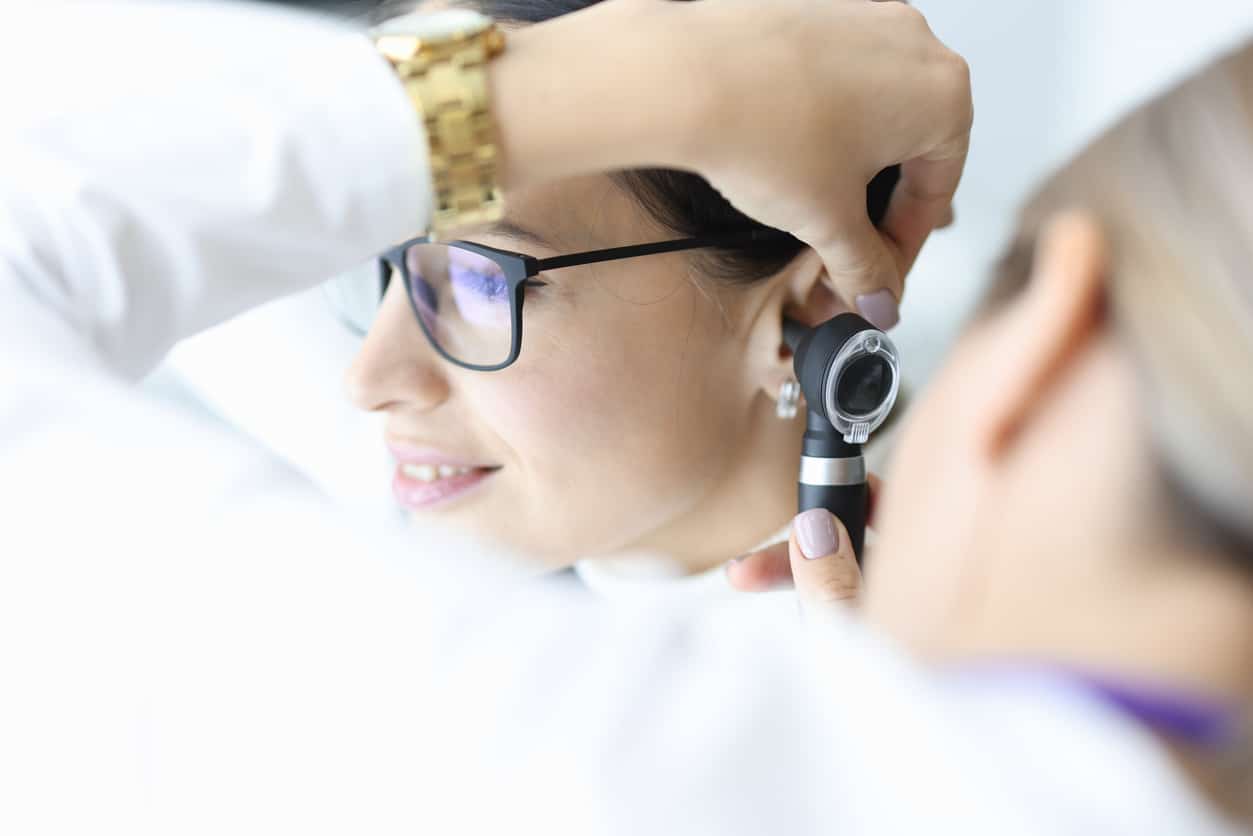Otorrhea refers to the abnormal discharge or drainage of fluid from the ear. It can be caused by various factors, including infections, trauma, foreign objects or underlying medical conditions. Managing otorrhea involves identifying and treating the underlying cause. Let’s look at a couple of steps you can take toward identifying the cause of and managing otorrhea.
Identifying the Cause

The most common causes of otorrhea include ear infections, swimmer’s ear and perforation from cotton swabs and other objects. Your ENT specialist can examine your ear canal and help you find the right cause and treatment plan.
Otorrhea Treatment Options
Your ENT provider may recommend one of the following treatment options based on the cause of your otorrhea:
- Antibiotics. If a bacterial infection causes the otorrhea, antibiotics may be prescribed to clear the infection. It’s crucial to complete the entire course of antibiotics as prescribed by a healthcare professional, even if symptoms improve before the medication is finished.
- Ear drops. Depending on the cause of otorrhea, your doctor may recommend ear drops to help clear infection, reduce inflammation or manage excessive wax buildup.
- Cleaning the ear. If wax buildup or foreign objects in the ear canal cause otorrhea, your provider may need to clean the ear canal to remove any blockages contributing to the discharge.
- Pain management. If otorrhea is accompanied by pain, over-the-counter pain relievers such as acetaminophen or ibuprofen may help manage discomfort. Contact your provider with questions about choosing the right pain medication.
Can You Prevent Otorrhea?
You cannot always prevent the underlying causes of otorrhea, but a few care tips can be beneficial in promoting ear health, including:
- Do not stick any objects in your ears, including cotton swabs. Small objects in the ear can lead to eardrum rupture or impacted wax.
- Avoid swimming in contaminated water. Opt for the Magnolia Swimming Pool over high-bacteria environments.
- Visit your ENT provider if you have ear infection symptoms lasting longer than 48 to 72 hours without improvement.
Follow up with your ENT provider to monitor progress and ensure that the otorrhea resolves effectively. Contact Southeast Texas Ear, Nose & Throat, LLP today to schedule an appointment with one of our specialists for an ear exam and treatment plan.